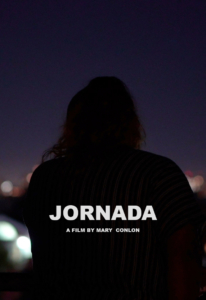JORNADA

Synopsis
Jornada, which means “day” or “journey” in Spanish, is also the name of the largest food pantry in Flushing. Since the pandemic started, the amount of families La Jornada feeds each week has increased tenfold. Through the eyes of the pantry’s volunteers, this short documentary examines the human cost of providing for so many people.
Credits
Mary Conlon – Writer, Director, & Producer
Angélica Dominguez
Pedro Rodriguez
Jessica Jara
Director Statement
Jornada brings us face to face with the largest food pantry in Flushing. The story is told through the perspective of its director and three of its volunteers, who are all Latino immigrants.
The individual roles of the characters are portrayed through vérité scenes and voiceover interviews. Through Pedro, the director, we learn that a large portion of their funding is unreliable and precarious. Angélica, one of the volunteers, takes us through her motivations for dedicating her time to this work, as well as the personal sacrifices it has cost her.
The filmmaking approach is restrained and experiential, loosely following a day in the life structure. The viewer floats through the different moving parts of this massive operation while being providing key pieces of information. The film encourages the viewer to make their own inferences about the larger picture, based on the minimal information the story provides.
Jornada is a layered story. On its surface, it is about the tangible struggles of providing food to so many people in this time of need. Underneath that, it reveals the emotional toll on the individuals who work there. Subconsciously, the frequent images of boxes of food and animals eating scraps prompts the viewer to consider their own relationship with food. And an important subtext, but one which isn’t directly addressed in the film, is that these are immigrants helping one another.
In the richest country in the world, in what was the epicenter of the epicenter of the coronavirus outbreak, undocumented immigrants have not received pandemic assistance from the federal government. Angélica’s line at the end of the film confronts this fact: “If we don’t help each other, who will?”
Director Biography
Mary is a documentary filmmaker based in New York City. Her written and visual stories have been published by Univision, City Limits, the NYCity News Service, and Latino Rebels. She graduated from CUNY with her Master’s in Spanish-language Journalism in December of 2020.
